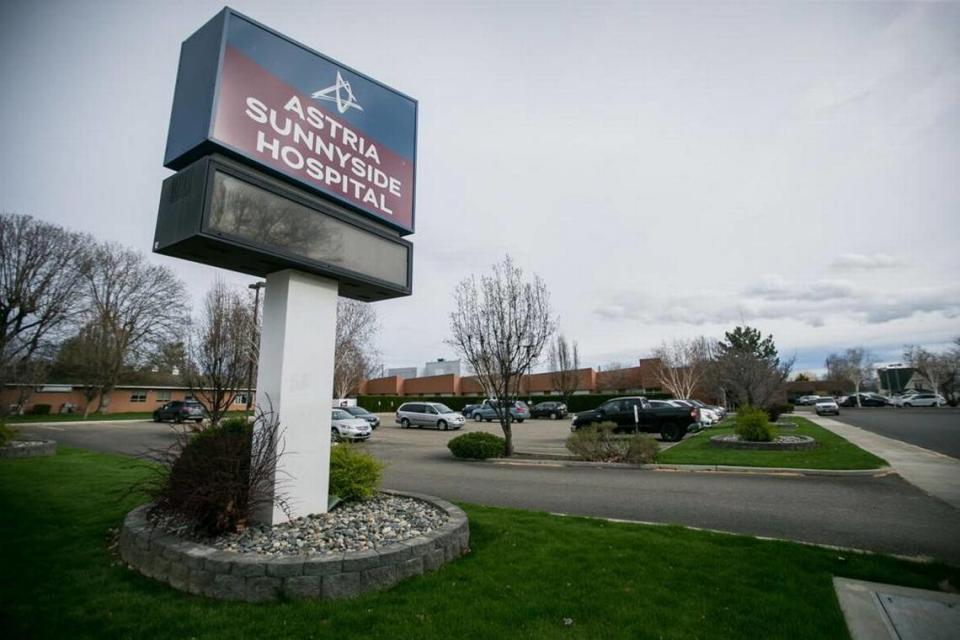6 Prosser workers arrive at hospital fearing radiation exposure. What really happened?
People living near the Astria Sunnyside Hospital in Yakima County were advised to stay indoors Sunday afternoon after six workers from Benton County told hospital workers they might be sick from radiation exposure.
Mid-Columbia health care workers train for radiation exposure because the most contaminated nuclear site in the western hemisphere, Hanford, is in their backyard.
But in this case it was workers in Prosser for Palouse Ranches company, which receives recycled metal piping, according to Mark Henry, supervisor for the Washington state Department of Health’s Radiological Emergency Preparedness and Response Section.
The piping is used for projects such as building corrals.
Some of the leftover piping was sent to a recycling center, which rejected it after detecting low levels of naturally occurring radiation, Henry said.
The workers knew that low levels of radioactivity had been detected in the piping and when they began to feel sick they suspected that was the cause.
When they arrived at the Sunnyside hospital about 1:20 p.m., they were escorted by staff to an isolated area of the parking lot, according to the Sunnyside Fire Department, which was called in to help.
Sunnyside is about 50 miles southwest of the Hanford nuclear site, where nearly two-thirds of the plutonium for the nation’s nuclear weapons program was made from World War II through the Cold War.
“Given the nature of the patients’ concerns, the incident was treated as a hazmat situation with a focus on possible radiation exposure to both the walk-in patients and other hospital occupants,” said Sunnyside Fire Chief Cameron Haubrich in a news release.
The Yakima County Emergency Management Office, Washington state Department of Health and Washington State Patrol were also notified.
New patients were diverted to other hospitals, in addition to nearby residents being advised to stay indoors as a precaution.
The patients and the emergency room were decontaminated, according to the Sunnyside Police Department.
“No harmful levels of hazardous materials were detected in the potential patients, hospital facilities or grounds,” according to Haubrich.
And there was no indication that any unsafe materials were introduced into the hospital or surrounding community, he said.
The cause of the six workers’ symptoms was likely noxious fumes from welding in an enclosed area without adequate protection, rather than radiation, according to the Washington state Department of Health.
The hospital returned to normal operations Sunday evening.
Naturally occurring radioactive materials include uranium, thorium and radium, according to the Nuclear Regulatory Commission.
The National Council on Radiation Protection and Measurements estimates that an average person in the United States receives a total annual dose of about 0.62 rem from all radiation sources, a level that has not been shown to cause humans any harm.
Of this total, natural background sources of radiation—including radon and thoron gas, natural radiation from soil and rocks, radiation from space, and radiation sources that are found naturally within the human body—account for about 50%.



